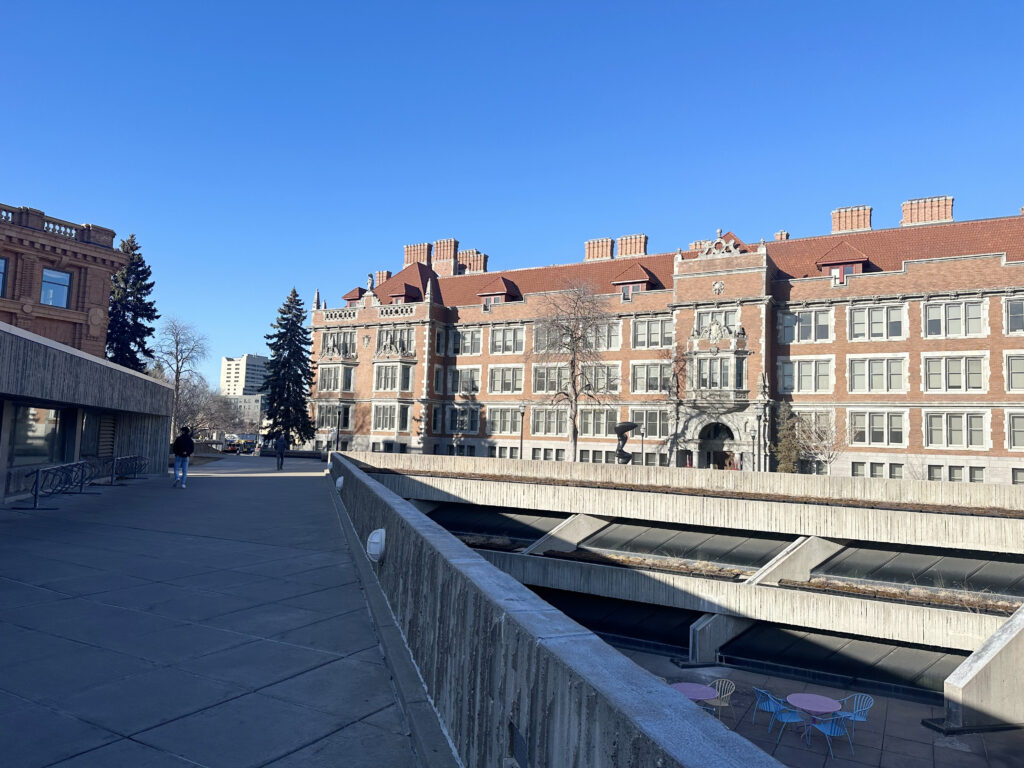UMN First-Gen Institute’s microgrant program supports first-generation student initiatives
A March 19 event will honor the innovative work produced from three years of microgrants and explore funding opportunities for the future.

Rashné Jehangir and LeeAnn Melin are in the process of creating a success center for first-generation students. They will have three staff members available for support, at the University of Minnesota, in Minneapolis, Minn., on Wednesday, Feb. 28, 2024.
By Ariana Valentin
When Rashné Jehangir, a professor of higher education in the College of Education and Human Development, founded the First-Gen Institute in 2017, her vision was to transform how first-generation students are taught at the university.
But the institute’s first year was a predictable battle for grants and fund-raising appeals that amounted to only $10,000.
Those funds were eventually used to seed microgrants for first-generation students to fund grassroots initiatives and connect with more students — an idea that paved the way for the institute’s growth. Since then, the institute has become a nexus for conversations about critical issues facing first-generation students and has gained funding from several colleges, the Graduate School and the First-Gen Proud campaign.
On March 19, to celebrate the third year of the microgrants program, the institute will honor the students who participated in the original microgrant program. The event will feature a panel where students will speak about the initiatives they pursued and the opportunities the microgrants afforded them.
“Now that we have done microgrants for three years, we have people who have experienced trying new innovative things,” said Jehangir, who is CEHD’s assistant dean for educational opportunity programs and Robert H. Beck Chair of Ideas. “And we want to hear what they did with the money or how successful it was and what challenges they faced.”
The event will also include the proposals for next year’s microgrants, which will determine where the donor money will be spent. The process of allocating these funds is overseen by a steering committee of 10 board professionals, many of whom were first-generation students themselves.
The first year of the microgrants program supported several student initiatives. These initiatives had a focus on connecting the university’s community of first-generation students through multiple and diverse networking systems.
Stephanie Davidson, one of the microgrant recipients, created a CIS orientation page to guide first-generation CIS students. The page includes a how-to for calculating GPA, guides for grants and scholarships applications and tips on how to manage the semester.
Other projects included the facilitation of focus groups. Jehangir said the focus groups had positive feedback, so she made sure that the idea behind these programs stuck around. Maintaining a network of first-generation students is one of Jehangir’s priorities.
LeeAnn Melin, associate vice provost for student success and member of the steering committee, said the institute has become a critical source of knowledge and support for first-generation students. Through the institute, she and Jehangir have begun a research and student-connection collaboration to create a First-Generation Student Success Program.
The institute also runs workshops that offer a history of terms surrounding first-generation students and discuss how unhelpful practices are perpetuated through a “hidden curriculum” in classrooms today. The purpose is to teach more equitable practices in classrooms that aim to uplift first-generation and underrepresented students.
“The first-generation institute and proud movement started as a visibility campaign,” Melin said. And from that, we have built a lot of strength and awareness.”

